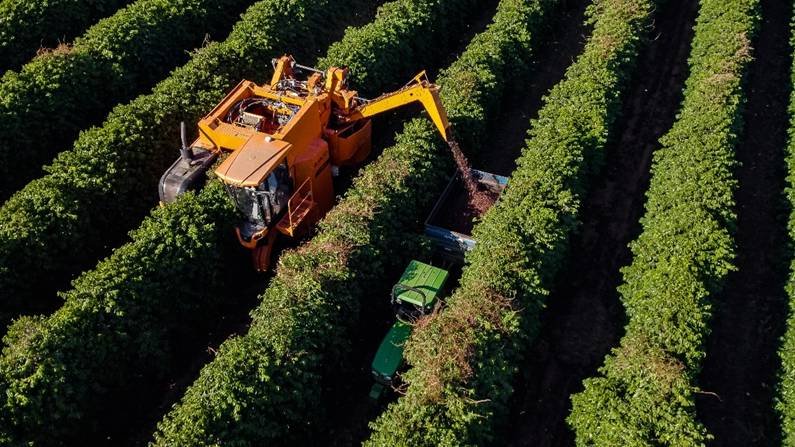Coffee cultivation in Brazil, especially in the Cerrado Mineiro region, is known for sustainable techniques and innovative coffee production systems. Technology is used throughout the coffee chain, from production to consumption, helping to improve the quality of coffee beans, increase exports and diversify markets. With a focus on meticulous quality of the beans, the Cerrado Coffee Growers Cooperative (Expocacer) has launched an industrial production line dedicated to the classification of specialty coffees, with small production volumes of up to 3,600 kg per hour.
“The machine is 100% automated and has 108 options for grain sorting routes. The automation system allows us to control the KPIs (production and maintenance management indicators) as well as predictive maintenance using artificial intelligence sensors. The system is designed to process quality coffee more selectively, aiming for higher yields, better selection and sorting of beans,” says Célio Barreto, Innovation and Technology Manager at Expocacer.
Expocacer’s machinery park, located in storage units I and II, features four coffee sorting production lines capable of producing up to 500 bags (60 kg) per hour, which equates to 30,000 kg/h.
Vanguard Cooperative is also using AI sensors for predictive maintenance. The sensors monitor machine vibrations and temperatures in real time, letting farmers know when and where to perform predictive maintenance without affecting the pace of production. This technology has reduced maintenance costs by 20% and increased machine availability by 10%.
Today, Expocacer warehouses are moving towards Industry 4.0 excellence. Industry 4.0 refers to industrial automation and the integration of various technologies such as artificial intelligence (AI), automation and robotics, the Internet of Things (IoT) and cloud computing, with the aim of promoting the decentralization of human actions in the production process, speeding up processes and increasing productivity by using automation and technology to connect the entire operation. These systems optimize and automate production by embedding intelligence in machines, allowing the generation of information and the connection of the various stages of the value chain.
“Our industry is becoming increasingly autonomous thanks to the transformative impact of AI and ‘digital twin’ technologies, and new workflows that use virtual simulations of operations as a reference now allow us to use IoT on every machine on the production line to test new layouts and identify new processes. Applying these technologies allows us to reduce cycle times in our operations and optimize space, processes and operational efficiency without costly physical changes,” explains Flávia Madureira, Operations and Logistics Director at Expocacer.
By incorporating innovation into the coffee production process, coffee producers can also meet consumer demands for transparency and sustainability in the supply chain. Technology can be applied to farmers and the coffee industry at various stages, including cultivation, harvesting, post-harvest, monitoring, quality control, traceability, automation and customer experience evaluation.
Coffee farmers are also using technologies on their farms, such as smart irrigation, which uses soil moisture sensors and weather stations to monitor environmental conditions and control irrigation systems precisely and efficiently. Machine learning algorithms are also being applied to optimize water usage, ensuring plants receive the right amount of water at the right time.
Cerrado Mineiro also uses systems for automatic grain sorting and classification, data management, mechanical harvesting, irrigation fertilization and precise nutrient application.
“We always aim to offer producers and consumers the best and most modern production techniques combined with sustainability. The future is fertile ground for innovation and creativity”, concludes Cerio Barreto.
0
1
Five
Brazilian Coffee: Automation, AI technologies highlight innovative production systems

